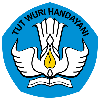The Influence of Metaverse in the Field of Education
Keywords:
pengaruh, metaverse, pendidikan, influence, metaverse, educationAbstract
As technology develops, sharing has been done to support learning. In the social 5.0 era, there are 3 things that must be utilized, namely: Internet of Things in the world of education (IoT), Virtual/Augmented Reality in the world of education, and the use of Artificial Intelligence (AI). So this research was carried out to find out how important the metaverse is for supporting learning. The results of research using this literature study show that the implementation of Metaverse in the education sector has great potential to support distance learning activities that are more interactive and immersive. In addition, Metaverse can provide scientific laboratory simulations, classroom simulations, or historical environment simulations that allow users to learn and interact in that environment.
Downloads
References
G. Santoso, A. Abdulkarim, S. Sapriya, B. Maftuh, and M. Murod, “Citizenship Education Perspective: Strengths, Weaknesses, And Paradigm of the Curriculum in 2022,” 2023, doi: 10.4108/eai.15-9-2022.2335929.
G. Santoso, “Model Analysis (SWOT) Of Curriculum Development From Civic Education At 21 Century, 4.0 Era In Indonesian,” IJEBD (International J. Entrep. Bus. Dev., vol. 4, no. 2, pp. 250–256, 2021, doi: 10.29138/ijebd.v4i2.1221.
N. Nurrisma, R. Munadi, S. Syahrial, and E. D. Meutia, “Perancangan Augmented Reality dengan Metode Marker Card Detection dalam Pengenalan Karakter Korea,” Inform. Mulawarman J. Ilm. Ilmu Komput., vol. 16, no. 1, p. 34, 2021, doi: 10.30872/jim.v16i1.5152.
M. Sholeh, J. Triyono, P. Haryani, and E. Fatkhiyah, “Penggunaan dan Pengembangan Aplikasi Berbasis Augmanted Reality,” Jmm, vol. 5, no. 5, pp. 2524–2536, 2021, [Online]. Available: http://journal.ummat.ac.id/index.php/jmm
L.-H. Lee et al., “All One Needs to Know about Metaverse: A Complete Survey on Technological Singularity, Virtual Ecosystem, and Research Agenda,” Oct. 2021, [Online]. Available: http://arxiv.org/abs/2110.05352
M. Damar, “Metaverse Shape of Your Life for Future: A bibliometric snapshot,” 2021.
P. ‘asher’ Rospigliosi, “Metaverse or Simulacra? Roblox, Minecraft, Meta and the turn to virtual reality for education, socialisation and work,” Interactive Learning Environments, vol. 30, no. 1. Routledge, pp. 1–3, 2022. doi: 10.1080/10494820.2022.2022899.
A. K. Sari et al., “Pengembangan Kompetensi Guru SMKN 1 Labang Bangkalan melalui Pembuatan Media Pembelajaran Augmented Reality dengan Metaverse,” 2020. [Online]. Available: http://journal.unhas.ac.id/index.php/panritaabdi
I. Sopiandi and D. Susanti, “Menganalisis Informasi Metaverse Pada Game Online Roblox Secara Garis Besar,” J. PETISI (Pendidikan Teknol. Informasi), vol. 3, no. 1, pp. 1–4, 2022, doi: 10.36232/jurnalpetisi.v3i1.2021.
S. M. Park and Y. G. Kim, “A Metaverse: Taxonomy, Components, Applications, and Open Challenges,” IEEE Access, vol. 10, pp. 4209–4251, 2022, doi: 10.1109/ACCESS.2021.3140175.
B. Kye, N. Han, E. Kim, Y. Park, and S. Jo, “Educational applications of metaverse: Possibilities and limitations,” J. Educ. Eval. Health Prof., vol. 18, pp. 1–13, 2021, doi: 10.3352/jeehp.2021.18.32.
Y. Li and D. Xiong, “The Metaverse Phenomenon in the Teaching of Digital Media Art Major,” Proc. 2021 Conf. Art Des. Inherit. Innov. (ADII 2021), vol. 643, no. Adii 2021, pp. 348–353, 2022, doi: 10.2991/assehr.k.220205.056.
J. E. M. Díaz, C. A. D. Saldaña, and C. A. R. Avila, “Virtual world as a resource for hybrid education,” Int. J. Emerg. Technol. Learn., vol. 15, no. 15, pp. 94–109, 2020, doi: 10.3991/ijet.v15i15.13025.
K. Hirsh-Pasek et al., “A whole new world: Education meets the metaverse,” Cent. Univers. Educ., no. February, 2022, [Online]. Available: https://www.brookings.edu/wp-content/uploads/2022/02/A-whole-new-world_Education-meets-the-metaverse-FINAL-021422.pdf
Downloads
Published
How to Cite
Issue
Section
License
Copyright (c) 2024 Prosiding Seminar Nasional Teknoka

This work is licensed under a Creative Commons Attribution-NonCommercial-ShareAlike 4.0 International License.






 Supported by :
Supported by :



